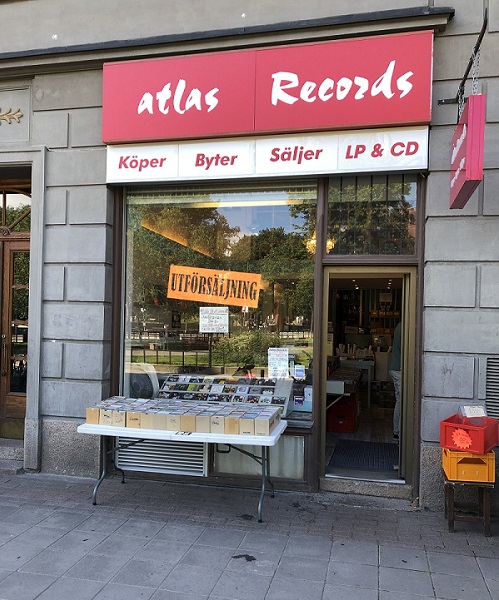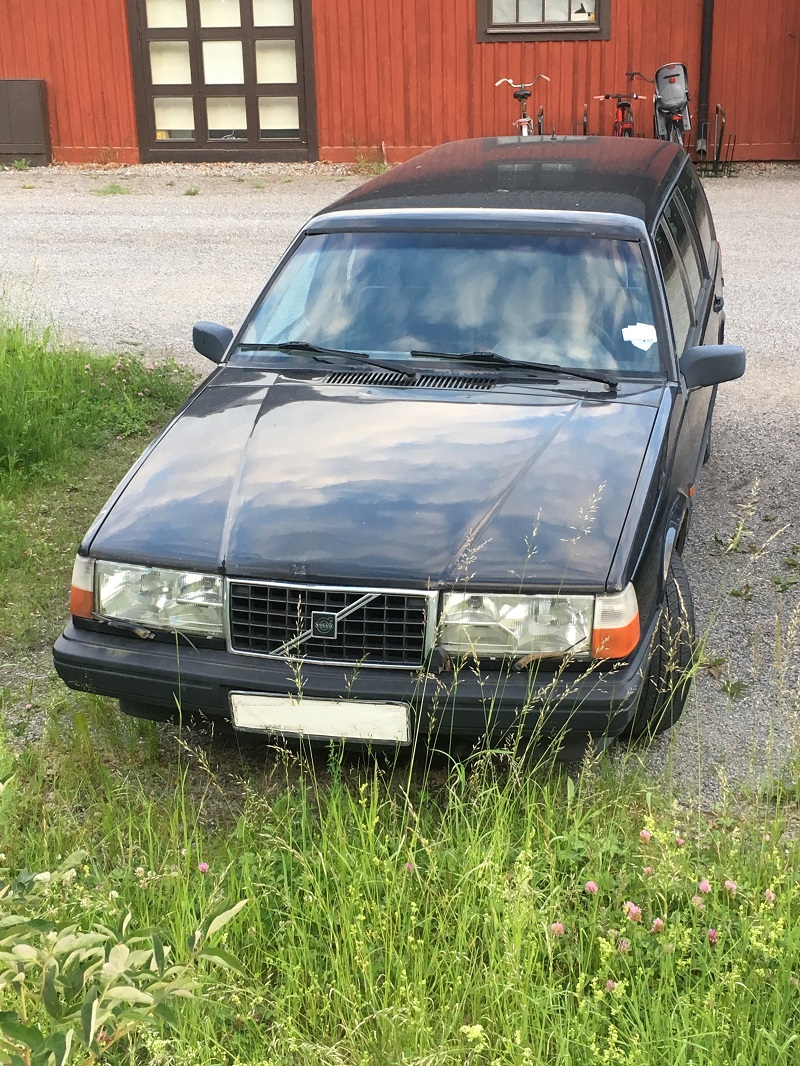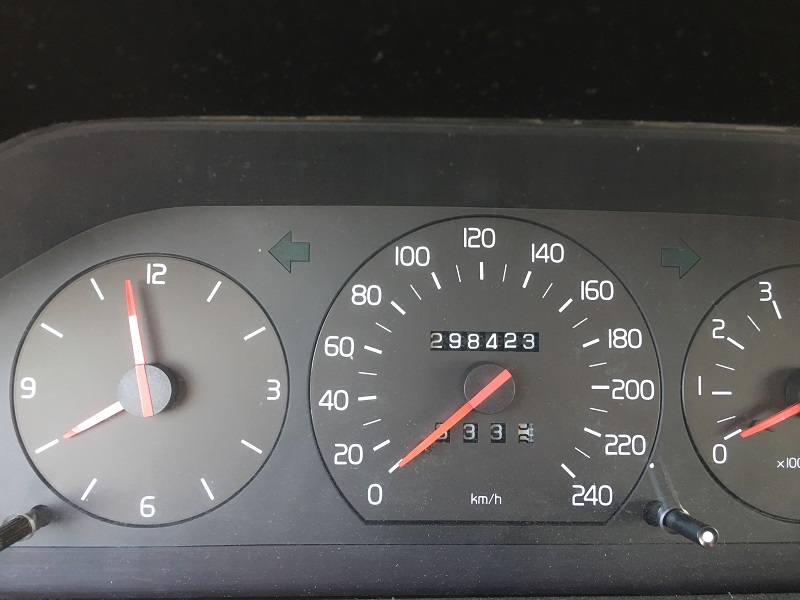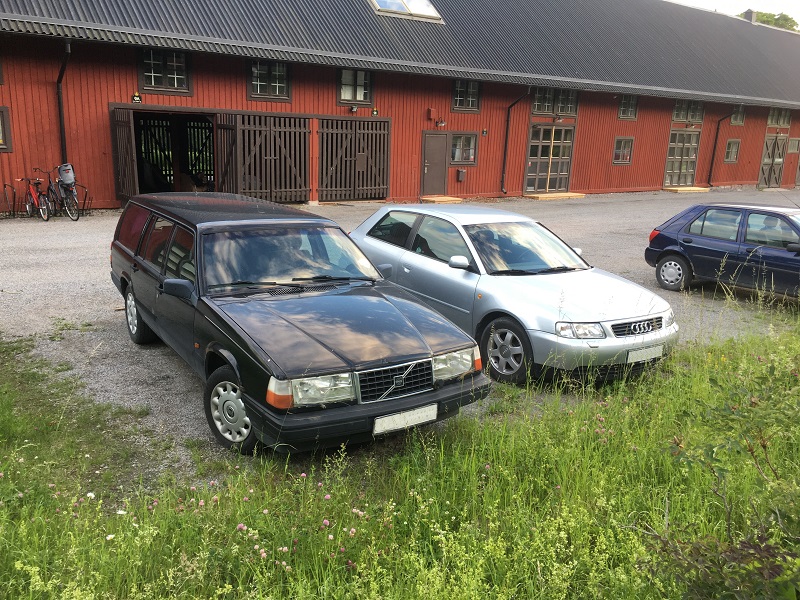 The Southern Gothic Campout 2020 wasn't pronounced dead at the scene. Just cancelled. In terms of substance, it's nearly the same thing. The cause for cancellation wasn't a potential risk of overcrowding. Too many people in the middle of nowhere in Adams, TN has never posed a problem for the arranger. The attendance figure was circa 100 in 2017 and tickets were limited to 300 in 2019. On June 26th the arranger wrote on their Facebook page: "This event has finally succumbed to the cold icy grip of the Covid-19 virus. Our 2 headliners have canceled their tours for 2020. Slim Cessna's Auto Club and Munly & The Lupercalians have pushed their performance to the 2021 Southern Gothic Campout. You may use your ticket for any other Muddy Roots event through 2022." When the headliners are gone, everything else falls apart. The SGC music festival was supposed to become a tradition this year since thrice is a tradition. Covid-19 has led to a downfall for many sectors. For musicians, however, the pandemic have had the same effect as when you put an icehockey-stick through the spokes of a bicycle. Sudden and total stop. Nobody knows if, when and how things are going to start up again. The maximum number of people allowed at a public event in Sweden is limited to 50 since March 2020. The restriction applies to events such as concerts, conferences, and sports matches, but not to private events such as parties or weddings, or in places like schools, workplaces or shopping centres. The Swedish Government declared on August 24th that the limit on public events would remain, but that it is looking into granting exceptions for seated events. The Public Health Agency of Sweden has recently suggested a limit of 500 people for seated events and 1 meter (40 inches) between attendants. This is good, but 500 people in a 3000 people venue will not make ends meet. Someone has to pay for the 2500 empty seats. Maybe, the Government has a plan. Southern Gothic Campout is a great initiative. It would be very unfortunate if the dark roots music festival never became a tradition. We need traditions. They contribute to a sense of belonging and meaningfulness. And we need to belong to something and things must have a meaning. Otherwise, we might as well be dead.
The Southern Gothic Campout 2020 wasn't pronounced dead at the scene. Just cancelled. In terms of substance, it's nearly the same thing. The cause for cancellation wasn't a potential risk of overcrowding. Too many people in the middle of nowhere in Adams, TN has never posed a problem for the arranger. The attendance figure was circa 100 in 2017 and tickets were limited to 300 in 2019. On June 26th the arranger wrote on their Facebook page: "This event has finally succumbed to the cold icy grip of the Covid-19 virus. Our 2 headliners have canceled their tours for 2020. Slim Cessna's Auto Club and Munly & The Lupercalians have pushed their performance to the 2021 Southern Gothic Campout. You may use your ticket for any other Muddy Roots event through 2022." When the headliners are gone, everything else falls apart. The SGC music festival was supposed to become a tradition this year since thrice is a tradition. Covid-19 has led to a downfall for many sectors. For musicians, however, the pandemic have had the same effect as when you put an icehockey-stick through the spokes of a bicycle. Sudden and total stop. Nobody knows if, when and how things are going to start up again. The maximum number of people allowed at a public event in Sweden is limited to 50 since March 2020. The restriction applies to events such as concerts, conferences, and sports matches, but not to private events such as parties or weddings, or in places like schools, workplaces or shopping centres. The Swedish Government declared on August 24th that the limit on public events would remain, but that it is looking into granting exceptions for seated events. The Public Health Agency of Sweden has recently suggested a limit of 500 people for seated events and 1 meter (40 inches) between attendants. This is good, but 500 people in a 3000 people venue will not make ends meet. Someone has to pay for the 2500 empty seats. Maybe, the Government has a plan. Southern Gothic Campout is a great initiative. It would be very unfortunate if the dark roots music festival never became a tradition. We need traditions. They contribute to a sense of belonging and meaningfulness. And we need to belong to something and things must have a meaning. Otherwise, we might as well be dead.
 Technical changes seems to be unstoppable whether we like it or not. I always say, progress is a fine thing, taken in moderation. Joseph Schumpeter was one of the most influential economists of the early 20th century, and popularized the term "creative destruction". According to Schumpeter it describes the "process of industrial mutation that continuously revolutionizes the economic structure from within, incessantly destroying the old one, incessantly creating a new one". Spotify is often taken as an example. They are a destroyer, that's for sure. However, I have serious doubts as to whether Spotify represents something new and lasting. Let's look at the latest figures. The financial report for Q2 2020 send shock waves. Operating loss amounted to €167 million (197 million dollar) and net loss was €356 million (421 million dollar). In any other kind of business the CFO would be out on ledge and ready to jump. Not in this case. The trademarks are headless expansion and throwing good money after bad. Some people claim that you got to spend money to make money. However, the Spotify spending reminds more of a cult sacrifice. The conversion strategy (by providing freemium, users will upgrade to premium) has been proven and failed. After more than 10 years the share of paying users is still below 50 percent. According to the Q2 report Spotify has about 138 million paying (premium) users (of a total of 299 million users) in Q2 2020, which makes 46 percent. In Q2 the number of paying users increased with 27 percent. At the same time the total number of users increased with 29 percent. Anyone can do the math: costs increases faster than revenues. However, the dancing around the golden calf will continue as long as there are investors who dream of enriching themselves. Well, dream on. In a pyramid scheme you need to be at the top of the pyramid, like the co-founder and CEO Daniel Ek. He made a comment the other day, which was very illuminating, yet unveiling. According to Daniel Ek artists will need to record an album more often than once every three or four years to make sufficient income. He obviously doesn't know anything about music or music composing. Or care, for that matter. Greed is good, said the fictive character Gordon Gekko. I don't agree. The streaming business model is built upon unfairness. Spotify stand out, by far, by paying least to artists. In my opinion, Spotify isn't part of any "creative destruction". On the contrary, they are leading in "uncreative destruction". I really hate everything about Spotify, read more here (opens in a new window). In the Q2 pressrelease Spotify turned to its shareholders with flowery words: "Our business performed well in Q2 and continues to operate at a high level despite the continuing uncertainty surrounding the COVID-19 pandemic." Yeah, right. The dog ate my homework.
Technical changes seems to be unstoppable whether we like it or not. I always say, progress is a fine thing, taken in moderation. Joseph Schumpeter was one of the most influential economists of the early 20th century, and popularized the term "creative destruction". According to Schumpeter it describes the "process of industrial mutation that continuously revolutionizes the economic structure from within, incessantly destroying the old one, incessantly creating a new one". Spotify is often taken as an example. They are a destroyer, that's for sure. However, I have serious doubts as to whether Spotify represents something new and lasting. Let's look at the latest figures. The financial report for Q2 2020 send shock waves. Operating loss amounted to €167 million (197 million dollar) and net loss was €356 million (421 million dollar). In any other kind of business the CFO would be out on ledge and ready to jump. Not in this case. The trademarks are headless expansion and throwing good money after bad. Some people claim that you got to spend money to make money. However, the Spotify spending reminds more of a cult sacrifice. The conversion strategy (by providing freemium, users will upgrade to premium) has been proven and failed. After more than 10 years the share of paying users is still below 50 percent. According to the Q2 report Spotify has about 138 million paying (premium) users (of a total of 299 million users) in Q2 2020, which makes 46 percent. In Q2 the number of paying users increased with 27 percent. At the same time the total number of users increased with 29 percent. Anyone can do the math: costs increases faster than revenues. However, the dancing around the golden calf will continue as long as there are investors who dream of enriching themselves. Well, dream on. In a pyramid scheme you need to be at the top of the pyramid, like the co-founder and CEO Daniel Ek. He made a comment the other day, which was very illuminating, yet unveiling. According to Daniel Ek artists will need to record an album more often than once every three or four years to make sufficient income. He obviously doesn't know anything about music or music composing. Or care, for that matter. Greed is good, said the fictive character Gordon Gekko. I don't agree. The streaming business model is built upon unfairness. Spotify stand out, by far, by paying least to artists. In my opinion, Spotify isn't part of any "creative destruction". On the contrary, they are leading in "uncreative destruction". I really hate everything about Spotify, read more here (opens in a new window). In the Q2 pressrelease Spotify turned to its shareholders with flowery words: "Our business performed well in Q2 and continues to operate at a high level despite the continuing uncertainty surrounding the COVID-19 pandemic." Yeah, right. The dog ate my homework.
 Atlas Shrugged. I'm sorry to disappoint you. This blog post isn't a tedious explanatory note about Ayn Rand's influential book from 1957. Instead, it deals with the closing of Atlas Records (formely known as Atlas CD-börs). The record store in Stockholm was named Atlas since it was located in the block named Atlas south of S:t Eriksplan, between S:t Eriksgatan, Torsgatan and Barnhusviken. The block got its name after an industrial and engineering company, AB Atlas, which operated there until 1927. Atlas had five different locations in the block. First location was at Atlasmuren, and then Torsgatan (two different locations). For over 15 years Atlas had a prime location at S:t Eriksgatan 78. However, a "market adjustment" put a stop to that. The owner of the premises, a housing association, raised the rent with 100 000 SEK a year (11 300 USD). They cried crocodile tears in the local paper. Atlas had on one hand been a problem-free tenant and some of the members in the housing association were customers, but on the other hand the housing association needed to act "in the interest of its members". Self-interest always takes precedence over moral considerations. The new rent was far beyond what a used record store could take. Atlas found a new home around the corner at S:t Eriksplan 5, where it remained until the end. It was only a stone's throw away, but it took some time for old and new customers to find their way there and for the store to regain its former glory. A couple of years ago I wrote a blog post about the rise and fall of record stores, read more here (opens in a new window). It has been all downhill after that. Atlas survived very hard times: illegal downloading, legal downloading, vinylmania and, last but not least, streaming. The virus covid-19 became the straw that broke the camel's back. The economic margins has always been small. You are dependent on a steady (however small) flow of customers. This Tuesday the owner Micke Bofält closed shop and retired. What made Atlas so resilient and viable? First and foremost, a knowledgeable owner and manager. Second, a store kept in an impeccable order (some adjacent cd stores give the concept of chaos a new and deeper meaning). Third, a large variety of offers. I even bought some gothic country cds there. Fourth, moderate and correct prices. Fifth and last, good customer treatment. The S:t Eriksgatan-Odengatan route was known for accommodate the highest density of record stores in Europe. This era is now long gone. The few remaining stores struggle to survive. For example, Skivbörsen has closed until further notice due to covid-19. Atlas Records was without any doubt one of top-three record stores in Stockholm. Atlas was a Titan. The closing of Atlas may not have rocked the world in its foundations, but the end of the block shrugged. The Titan Atlas was namely condemned to hold up the celestial heavens for eternity.
Atlas Shrugged. I'm sorry to disappoint you. This blog post isn't a tedious explanatory note about Ayn Rand's influential book from 1957. Instead, it deals with the closing of Atlas Records (formely known as Atlas CD-börs). The record store in Stockholm was named Atlas since it was located in the block named Atlas south of S:t Eriksplan, between S:t Eriksgatan, Torsgatan and Barnhusviken. The block got its name after an industrial and engineering company, AB Atlas, which operated there until 1927. Atlas had five different locations in the block. First location was at Atlasmuren, and then Torsgatan (two different locations). For over 15 years Atlas had a prime location at S:t Eriksgatan 78. However, a "market adjustment" put a stop to that. The owner of the premises, a housing association, raised the rent with 100 000 SEK a year (11 300 USD). They cried crocodile tears in the local paper. Atlas had on one hand been a problem-free tenant and some of the members in the housing association were customers, but on the other hand the housing association needed to act "in the interest of its members". Self-interest always takes precedence over moral considerations. The new rent was far beyond what a used record store could take. Atlas found a new home around the corner at S:t Eriksplan 5, where it remained until the end. It was only a stone's throw away, but it took some time for old and new customers to find their way there and for the store to regain its former glory. A couple of years ago I wrote a blog post about the rise and fall of record stores, read more here (opens in a new window). It has been all downhill after that. Atlas survived very hard times: illegal downloading, legal downloading, vinylmania and, last but not least, streaming. The virus covid-19 became the straw that broke the camel's back. The economic margins has always been small. You are dependent on a steady (however small) flow of customers. This Tuesday the owner Micke Bofält closed shop and retired. What made Atlas so resilient and viable? First and foremost, a knowledgeable owner and manager. Second, a store kept in an impeccable order (some adjacent cd stores give the concept of chaos a new and deeper meaning). Third, a large variety of offers. I even bought some gothic country cds there. Fourth, moderate and correct prices. Fifth and last, good customer treatment. The S:t Eriksgatan-Odengatan route was known for accommodate the highest density of record stores in Europe. This era is now long gone. The few remaining stores struggle to survive. For example, Skivbörsen has closed until further notice due to covid-19. Atlas Records was without any doubt one of top-three record stores in Stockholm. Atlas was a Titan. The closing of Atlas may not have rocked the world in its foundations, but the end of the block shrugged. The Titan Atlas was namely condemned to hold up the celestial heavens for eternity.

Who in their right mind would wreck the car on the left and buy the car on the right? I did. I broke the first rule again. My father-in-law offered us the silver Audi A3, 1997 years model (on the right) for practically nothing. I also broke the second rule. If it ain't broke, don't fix it. Let's compare the two cars. The Volvo was built to last and fit for hard winter conditions. When you turned the ignition key, it never failed. The car quickly got warm and the fan kept the windshields clear. The seat comfort was of royal standard and suited for long distances. The legroom in the backseat was generous. The dashboard was simple and intuitive. The loading capacity was enormous. If you fold down the back seats the loading capacity you could sleep there. It was also a crash proof car. On the downside: the fuel economy and rear-wheel drive prone to losing traction in rain, mud or snow. The Audi A3 starts indeed when you turn the key, but the battery has discharged two or three times. The heating system is a complete disgrace. In the wintertime the windshields are full of condensation. You have to wipe it off with a rug to be able to see anything. The seat comfort leaves much to be desired. You have to fold and unfold yourself in and out of the car. The legroom in the backseat is for people without legs. The dashboard is incomprehensible. The loading capacity is a joke. The fuel economy is, however, good. On the downside: almost everything. We have never connected. I have never played "Long may you run" on the car stereo. So, how could this happen? The Volvo 945 was a bit scruffy with incipient corrosion after years of neglect. Some people don't think of a car as a vehicle, but as a branding of themselves. A senior colleague, who I gave lift, was very surprised to find out that I drove a "drug addict car". He thought this was below my pay grade. But, new and expensive cars have never interested me. The same goes for my closest friends. My friend Johan has two principles: the purchase price of your car shouldn't exceed the purchase cost of your hifi equipment and always strive after to be the last owner of the car. Principles cost, but new cars cost far more. The Volvo 945 leaked some oil which meant that it always failed the Swedish Motor Vehicle Inspection test. However, the guys at my low-priced car service were practical men. They simply washed the engine and took it back for inspection. The car was approved, so there wasn't really an oil leakage problem. The fuel economy of the car wasn't any real problem either, since we drove less than 10 000 km (6 214 miles) per year. I broke rule number three. Never exchange something for nothing.
 Neil Young's 1948 Buick Roadmaster hearse (a.k.a. "Mortimer Hearseburg") was last seen alive in Blind River Ontario, Canada (contrary to popular belief in 1965, not in 1962). The Volvo 945 was last seen in Lunda industrial area north of Stockholm in June 2017. It had been brought to a wrecking yard by yours truly. Why didn't I sell it? The answer is that selling a low-priced used car privately is like entering Dante's nine circles of Hell. You attract the lowest of the low. The son of good friends of ours had started a career as a used car salesman. He bluntly estimated the value of the car and also targeted the potential customer: a single middle-aged woman with dogs living in a geographically remote part of the county looking for a car with cargo grids. It settled the matter. I decided to wreck it and to lose the money. The man at the wrecking yard did some small talk while he was filling in the Certificate of Destruction. "What's wrong with it" he asked. I answered without thinking. "Well, nothing really. Some oil leakage". He look at me with incredulous eyes. Certainly, this man must have seen and heard everything, but somehow I think I directly made it to his top ten lists over terrible persons. To be able to wreck a perfectly good car takes a certain kind of cruelty. The mileage was only 298 423 km (185 431 miles). This is no mileage for a Volvo ("I roll" in Latin). The die-hard Volvo enthusiasts chuckles and say: "only running-in the motor". A mileage of 500 000 km (310 686 miles) isn't unusual for a Volvo. Admission of guilt is taking responsibility for a mistake. This was a terrible mistake. And you may now ask how a car ends up in a blog entry for a gothic country site. Well, maybe it's a bit of a stretch, but it's black and could easily be mistaken for a funeral car. And common themes in the gothic country genre are repentance, punishment and regret.
Neil Young's 1948 Buick Roadmaster hearse (a.k.a. "Mortimer Hearseburg") was last seen alive in Blind River Ontario, Canada (contrary to popular belief in 1965, not in 1962). The Volvo 945 was last seen in Lunda industrial area north of Stockholm in June 2017. It had been brought to a wrecking yard by yours truly. Why didn't I sell it? The answer is that selling a low-priced used car privately is like entering Dante's nine circles of Hell. You attract the lowest of the low. The son of good friends of ours had started a career as a used car salesman. He bluntly estimated the value of the car and also targeted the potential customer: a single middle-aged woman with dogs living in a geographically remote part of the county looking for a car with cargo grids. It settled the matter. I decided to wreck it and to lose the money. The man at the wrecking yard did some small talk while he was filling in the Certificate of Destruction. "What's wrong with it" he asked. I answered without thinking. "Well, nothing really. Some oil leakage". He look at me with incredulous eyes. Certainly, this man must have seen and heard everything, but somehow I think I directly made it to his top ten lists over terrible persons. To be able to wreck a perfectly good car takes a certain kind of cruelty. The mileage was only 298 423 km (185 431 miles). This is no mileage for a Volvo ("I roll" in Latin). The die-hard Volvo enthusiasts chuckles and say: "only running-in the motor". A mileage of 500 000 km (310 686 miles) isn't unusual for a Volvo. Admission of guilt is taking responsibility for a mistake. This was a terrible mistake. And you may now ask how a car ends up in a blog entry for a gothic country site. Well, maybe it's a bit of a stretch, but it's black and could easily be mistaken for a funeral car. And common themes in the gothic country genre are repentance, punishment and regret.

